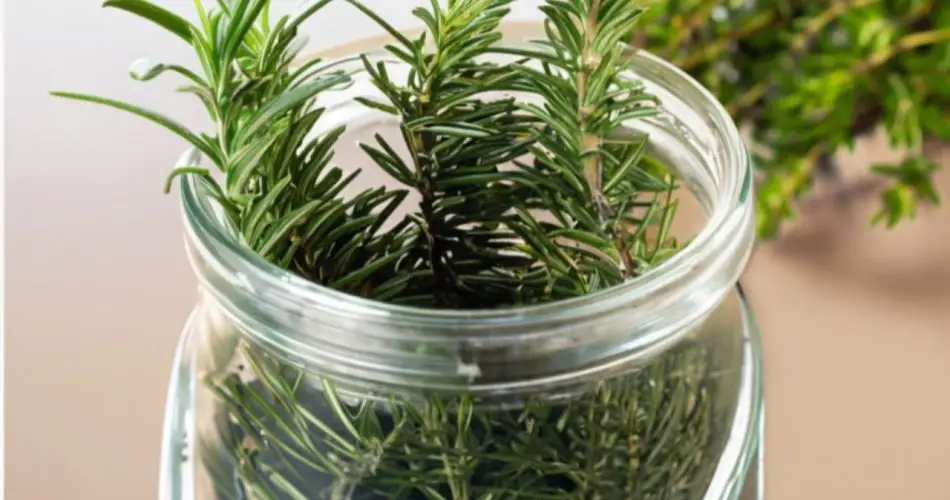The wisdom passed down from our grandparents is full of simple yet effective tricks that can enhance our daily lives. Among these is the use of rosemary, a fragrant herb that has been a staple in Italian kitchens for centuries. This age-old practice involves placing sprigs of rosemary in a jar to neutralize bad odors, particularly in the refrigerator. Here’s how you can incorporate this natural remedy into your home, along with a few additional tips for using rosemary in other practical ways.
Scenting Your Refrigerator with Rosemary
Rosemary is not only an aromatic herb with a refreshing fragrance, but it also possesses antibacterial and antioxidant properties. These characteristics make it an excellent choice for keeping your refrigerator smelling fresh and clean. Here’s a step-by-step guide to using rosemary in your fridge:
- Select Fresh Rosemary: Start by purchasing fresh rosemary sprigs from your local grocery store, or better yet, grow your own at home. Rosemary thrives in pots or gardens and is relatively easy to cultivate.
- Prepare a Jar: Find a small jar or container with a lid that will fit comfortably in your refrigerator.
- Fill the Jar: Remove the leaves from the rosemary sprigs and place them in the jar. To release more of the herb’s natural aroma, you can crush the leaves slightly with your fingers.
- Create a Diffuser: Close the jar with the lid and puncture small holes in the top to allow the scent to disperse throughout your refrigerator.
- Place in the Fridge: Position the jar on a shelf in your refrigerator where it won’t interfere with your food storage. The top shelf is usually a good spot.
- Refresh Regularly: To maintain the fresh scent, replace the rosemary sprigs every two weeks.
This simple practice not only neutralizes unpleasant odors but also adds a natural, refreshing scent to your refrigerator, making it a more pleasant environment for your food.
Additional Home Uses for Rosemary
Beyond the refrigerator, rosemary can be used in several other ways to improve your home environment. Here are three more tricks that harness the power of this versatile herb:
1. Natural Fragrance Diffuser
Create a natural fragrance diffuser by placing a few rosemary sprigs in a glass or vase filled with water. To enhance the aroma, you can add a few drops of rosemary essential oil. This diffuser can be placed in any room to infuse the air with a delicate, herbal scent. It’s a simple, cost-effective way to keep your home smelling fresh.
2. Air Purifier
Rosemary can also be used as a natural air purifier. To make a purifying spray, boil a few rosemary sprigs and some lemon peels in water. After letting the mixture steep, strain it and pour the liquid into a spray bottle. This homemade air freshener is perfect for eliminating odors in the kitchen, bathroom, or any room that needs a quick refresh. The combination of rosemary and lemon creates a clean, invigorating scent that also helps to purify the air.
3. Insect Repellent
Rosemary’s strong scent is known to repel many common household pests, such as mosquitoes and flies. To make a natural insect repellent, boil a few rosemary sprigs in water for about 20 minutes. Once the mixture has cooled, strain it and pour the liquid into a spray bottle. You can then spray this solution around windows, doors, and other entry points to keep insects at bay. This method is a safe, natural alternative to chemical insect repellents, making it ideal for homes with children and pets.
Conclusion: Embracing the Versatility of Rosemary
Rosemary is more than just a culinary herb; it’s a versatile resource that can be used to enhance the ambiance and cleanliness of your home. Whether you’re using it to freshen up your refrigerator, purify the air, or repel insects, this ancient practice is both practical and eco-friendly. By incorporating these simple, natural tricks into your routine, you can create a more pleasant and healthy living environment, all while embracing the timeless wisdom of generations past. So, the next time you’re in the kitchen, consider the humble rosemary sprig—its uses extend far beyond the dinner plate.



